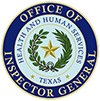Pharmacy errors led to more than $18,000 in overpayments
Recently, OIG auditors found a managed care pharmacy based in Houston had dispensed prescriptions to Medicaid clients with errors in records, printed instructions and medication strength. Bemaj Pharmacy was found to comply with requirements to provide the correct medication in the correct quantity; however, errors that led to overpayments were discovered.
During the audit period from September 2017, through August 2022, Bemaj served as a managed care pharmacy and was paid $61,312 to fill prescriptions for Amerigroup Insurance Company and $389,186 to fill prescriptions for Superior HealthPlan. During the audit, 205 pharmacy encounters were reviewed to ensure Bemaj met state and federal rules for serving Medicaid clients.
Of the reviewed pharmacy encounters, 79 did not comply with the requirements for written prescriptions. Among these prescriptions, 69 were missing physician signatures and dates, three were missing signatures or dates from the pharmacist, and 14 contained inconsistent signatures and dates when compared against supporting records. Auditors determined these errors resulted in a $11,084 overpayment to Bemaj.
An additional $7,234 overpayment was made to Bemaj after 42 pharmacy encounters showed invalid prescriptions for opioids and schedule II medications had been filled. At issue were prescriptions faxed to the pharmacy. To protect against opioid misuse, program rules permit only written or electronically-delivered prescriptions be filled.
A final $356 in overpayments were found by auditors as the result of Bemaj failing to retain important records for three claims, a single prescription that was an improper dosage and two opioid prescriptions with instruction labels that did not meet with the physician’s orders.
To rectify the issues, Bemaj should repay the state $18,675.55 and has been provided with corrective actions. Specifically, Bemaj should:
- Print dispensing labels with the correct dosage directions based on the prescribed dosage directions.
- Dispense prescriptions in medication strengths that align with the prescribed medication strength.
- Retain all necessary documentation to support that it dispensed and filled each prescription accurately and confirmed medication delivery.
- Not process prescriptions for opioid or Schedule II prescriptions when received through fax or fill prescriptions marked as void.
- Verify that it submits claims for written prescriptions only when the prescriptions were signed and dated by the dispensing pharmacist on the date the prescription was filled.

